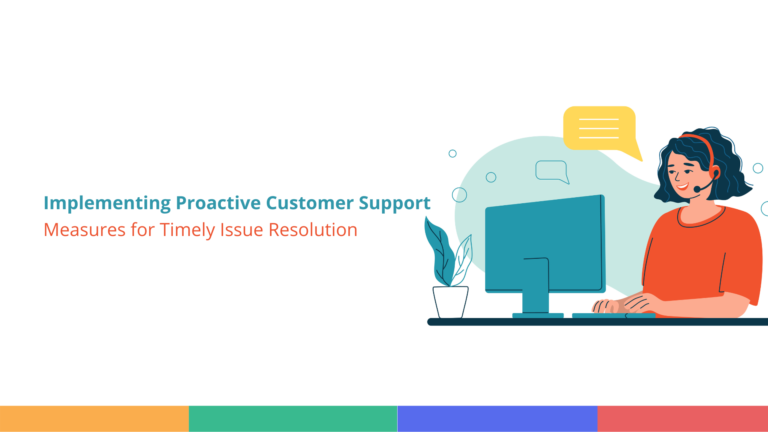Understanding and engaging with the target group is critical to success in ecommerce as it helps you to understand customers’ needs better and to k beep a product-mix that fulfills their needs. This allows you to adopt a more customer-centric approach, increasing the chances of attracting and retaining customers, as your offerings are more likely to align with their expectations.
Ecommerce sellers need to reach out to their target group to inform and interact with them as and when required. It helps in personalizing customer experience.
Additionally, customers nowadays prefer to buy and engage with businesses on their preferred channels. Therefore, you have to be there where they are and they expect you to be. However, this is not possible to achieve manually, especially when most ecommerce sellers have multiple channels.
In this blog, you’ll learn about some software systems to help you engage with the target group.
Software Systems for Customer Engagement
Here are some critical software systems to help you engage with your target group:
Understand your customer
Customer Relationship Management (CRM) platforms can be used to segment customers based on their preferences, behavior, and purchase history. By doing so, businesses can create and launch targeted marketing campaigns. When your marketing efforts are precisely targeted at the target group of customers, it is more likely to resonate with their customers and lead to higher engagement rates.
You can segment customers’ data based on defined parameters. This allows you to reach precisely where your customers are, enabling you to deliver personalized messages to their customers to your target group that reach them at the right time and through the right channel. These personalized messages need to be automated.
You need to understand customer behavior. There are several analytics tools available that can help you monitor customer behavior and gain actionable insights. Some popular options include Google Analytics, Adobe Analytics, Mixpanel, and Kissmetrics. These tools can help you track user behavior on your website, identify patterns and trends, and optimize your engagement strategies accordingly. Additionally, you may want to consider using tools like Hotjar or Crazy Egg to gain a better understanding of how users interact with your website and identify areas for improvement.
Give them what they want
You can easily deliver a more personalized experience by offering them relevant product recommendations. By analyzing customer data and behavior, personalization systems can make product recommendations, show relevant offers and promotions, and display personalized content on the website.
This can help increase engagement rates and improve customer loyalty. You can use tools like Monerate, Yusp, and Attraqt to provide product-relevant recommendations to customers.
Communicate and consider the feedback they are giving
Running an ecommerce business is not easy. The problem compounds when you have multiple ecommerce channels. There are many instances when you must send personalized emails to customers who abandon their shopping cart, reminding them to complete their purchase. You may need to incentivize them to complete the checkout process.
Moreover, customer engagement processes are often time-consuming and most of these tasks need to be automated with software systems to save you time.
For example, you may need to inform your customers about the arrival of new products via email, SMS, or WhatsApp. Such tasks can be easily automated using notification tools like WebEngage, Catpush, MoEngage, and more.
Social media platforms are critical to customer engagement. Customers nowadays want to interact with businesses in real-time through Twitter, Instagram, Pinterest, or the social platform of their choice and you have to be there to respond to their queries, and complaints and address their concerns if any. You need a system to help increase your visibility, drive website traffic, boost sales, and enhance customer relationships.
Tools like Brandwatch, Mention, or Sprout Social can help you monitor what customers are saying about you, allowing you to engage in conversations about your industry or niche.
Using tools like Trustpilot and Bazaarvoice allows ecommerce businesses to collect, verify, and display customer reviews, enhancing trust and credibility.
Verified reviews, both positive and negative, provide transparency and social proof, influencing purchasing decisions and improving SEO. By showing a commitment to quality through responsiveness to customer concerns, businesses can build stronger customer relationships, increase sales, and benefit from word-of-mouth marketing. These tools can be invaluable for bolstering your online reputation.
Visit us to know all about: The Winning Formula: Strategically Engaging Your Target Group for Success.
Closing Thoughts
Finally, software systems are essential for achieving effective target group engagement in e-commerce. They help businesses automate their marketing campaigns, personalize the customer experience, and analyze customer data to make informed decisions. By leveraging these tools, businesses can build a loyal customer base, increase sales revenue, and improve brand reputation.




